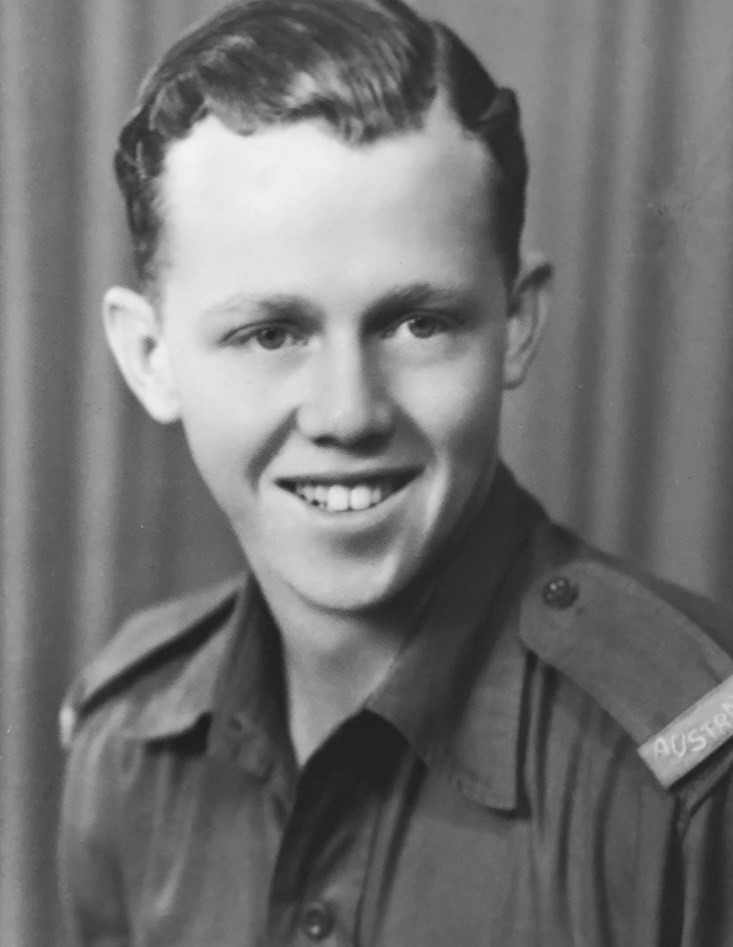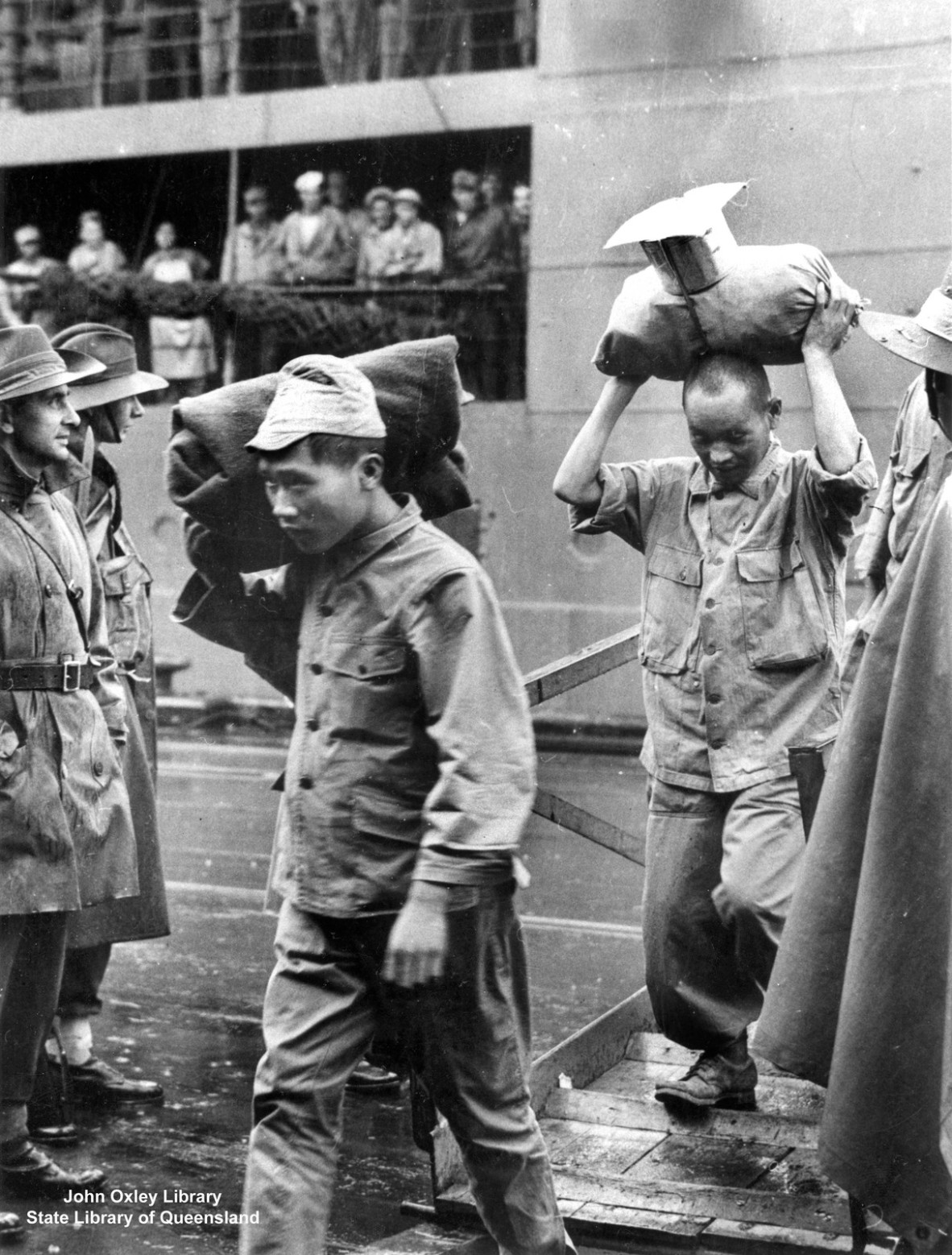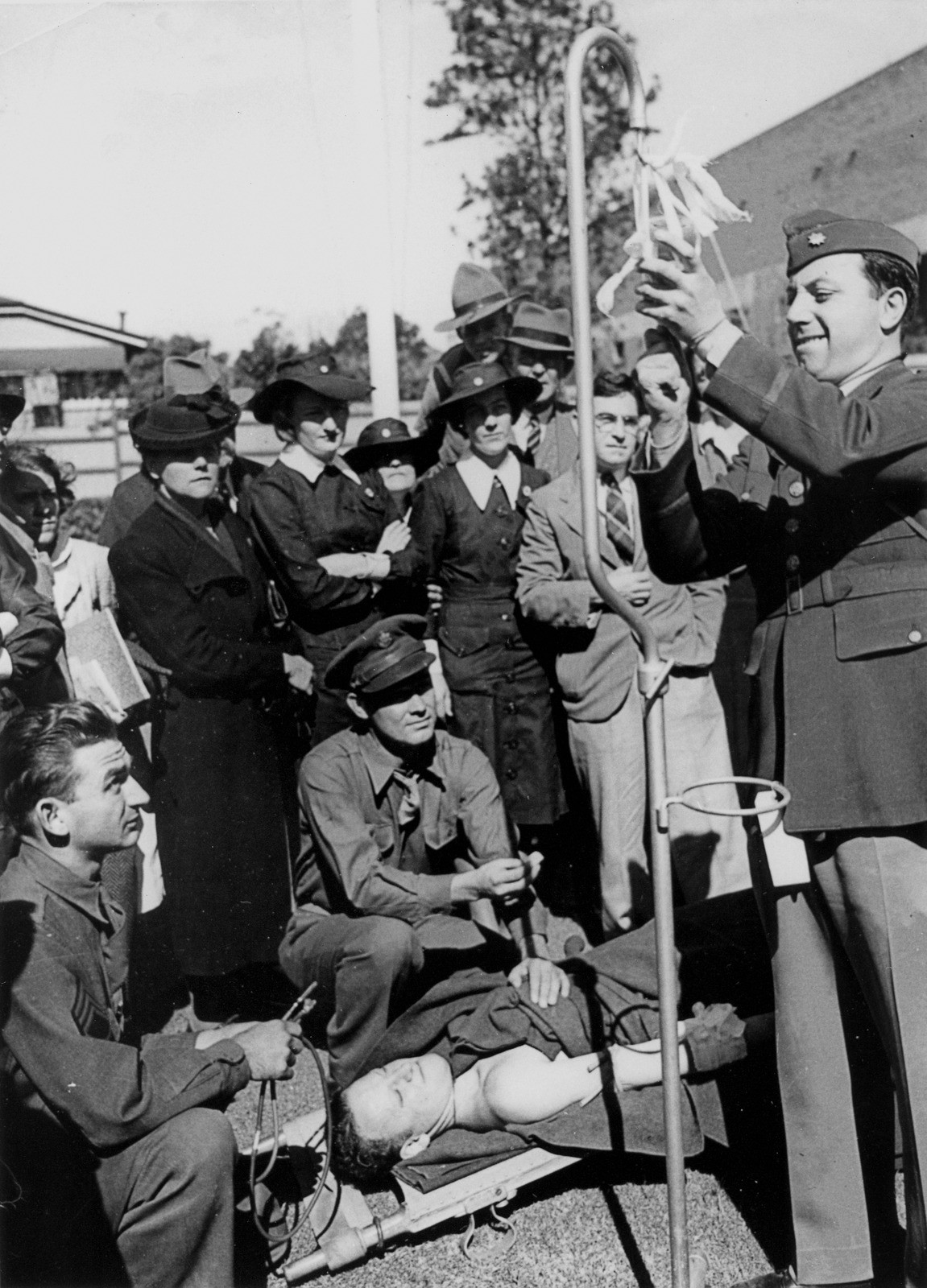75 Years: Victory in the Pacific Day Digital Stories and Oral Histories – Robert McDermant, Veteran
By India Dixon, Librarian, Queensland Memory | 14 May 2021
The end of World War Two, for Queenslanders and Australia at large, came officially with the declaration of Victory in the Pacific in August 1945.
For Australian soldiers, it was the end of a turbulent and sometimes traumatic experience. Whilst some soldiers returned home within a matter of days, others would remain in the Pacific for months to come, organising the return of the wounded, the identification and burial of the dead, the processes for surrendered Japanese forces, and the stabilisation and rebuilding of small island nations rocked by a war that was not their own.
Robert McDermant, QX58320, was a nursing orderly with the 7th Field Ambulance. Born in March 1923, he enlisted in 1941 after receiving a letter to meet members of the army at Roma Street Station. Initially placed in infantry, he was later transferred into nursing due to significant prior training in first aid and an endorsement with St John’s Ambulance.

Portrait of Robert McDermant.
Photograph from the World War Two veteran Robert McDermant digital story and oral history, 75 Years: Victory in the Pacific digital stories and oral histories, This Story Australia Ltd., producer, 2020, John Oxley Library, State Library of Queensland.
His oral history details his time in Port Moresby, Milne Bay, and Papua New Guinea. He describes in detail the events of a five day journey on a makeshift hospital and POW transport ship, filled with sick and wounded Japanese soldiers.

Japanese prisoners of war arriving at Brisbane, ca. 1944. Negative number 45719, John Oxley Library, State Library of Queensland.
Due to his training with cutting-edge blood transfusion technology, Robert spent the majority of his overseas service in Forward Aid posts, which were the first response units and closest to enemy action.
When the Pacific campaign ended and victory was declared, Robert and a friend found their own means of returning home to Brisbane. Stowing away on the River Fitzroy, they successfully avoided detection until the ship was already out at sea. Both soldiers were charged as being Absent Without Leave (AWOL) and were fined 28 days’ pay and ₤5. However, they received largely positive treatment from the Australian public, including receiving free meals from local restaurants.

First aid practise in Brisbane, ca. 1942. Troops practising a blood transfusion in the field, while a group of observers watch. Negative number 166296, John Oxley Library, State Library of Queensland.
When Robert was formally discharged, he was one of many soldiers who was able to return to his previous job in Queensland, but his passion for the Queensland Ambulance service led him into a lifelong career there. You can access Robert McDermant’s fascinating story in its full oral history and digital story here:
World War Two veteran Robert McDermant digital story and oral history, 75 Years: Victory in the Pacific digital stories and oral histories, This Story Australia Ltd., producer, 2020, John Oxley Library, State Library of Queensland.
This activity was funded under the Commonwealth Government’s Saluting Their Service Commemorative Grants Program. Proudly supported by the Queensland Government.
View the catalogue record for the digital story
View other similar digital stories from the collection
View, comment or contribute your own Victory in the Pacific stories and photographs with Explorer
-
Explorer set: Victory In The Pacific Day
Comments
Your email address will not be published.
We welcome relevant, respectful comments.